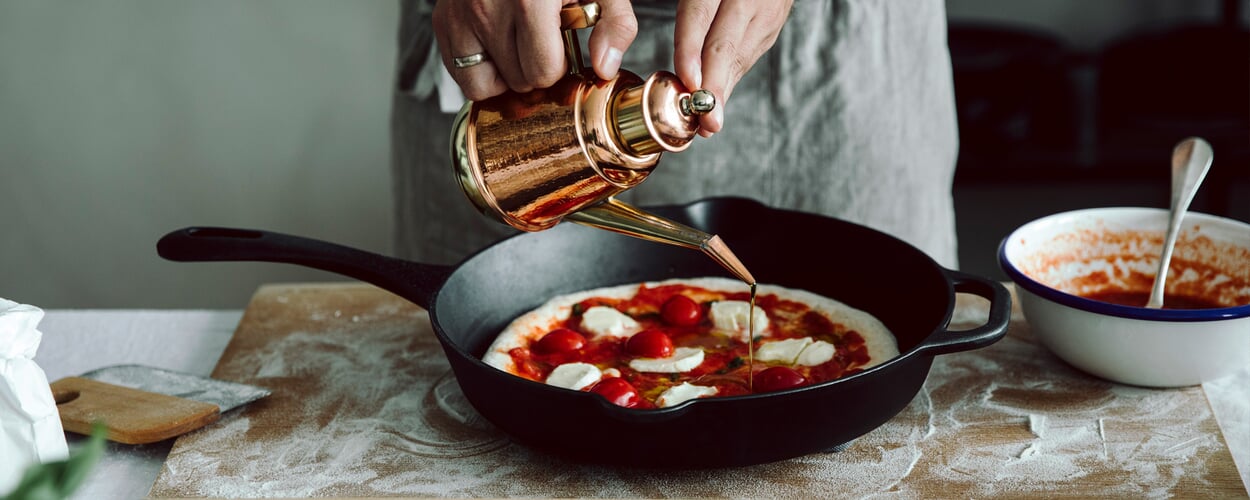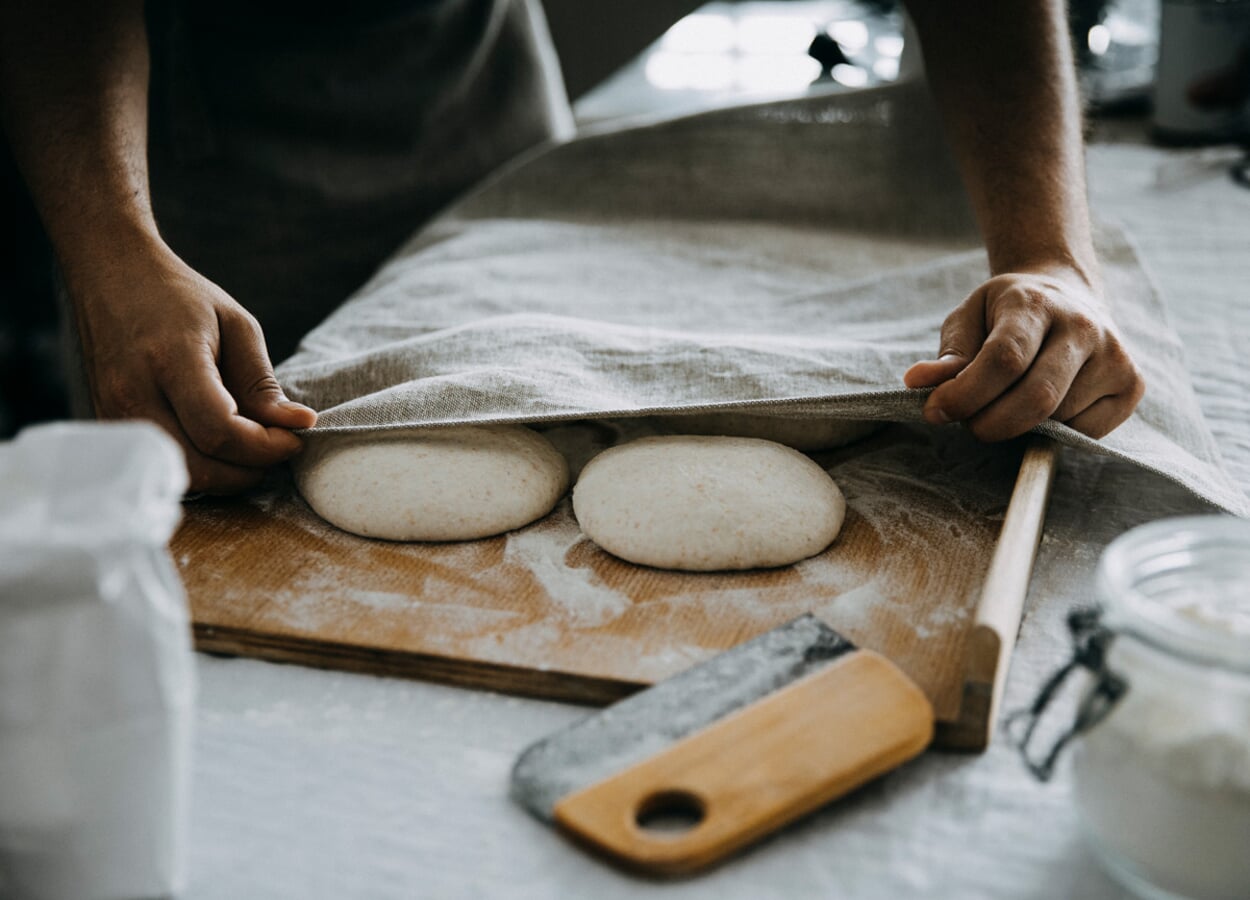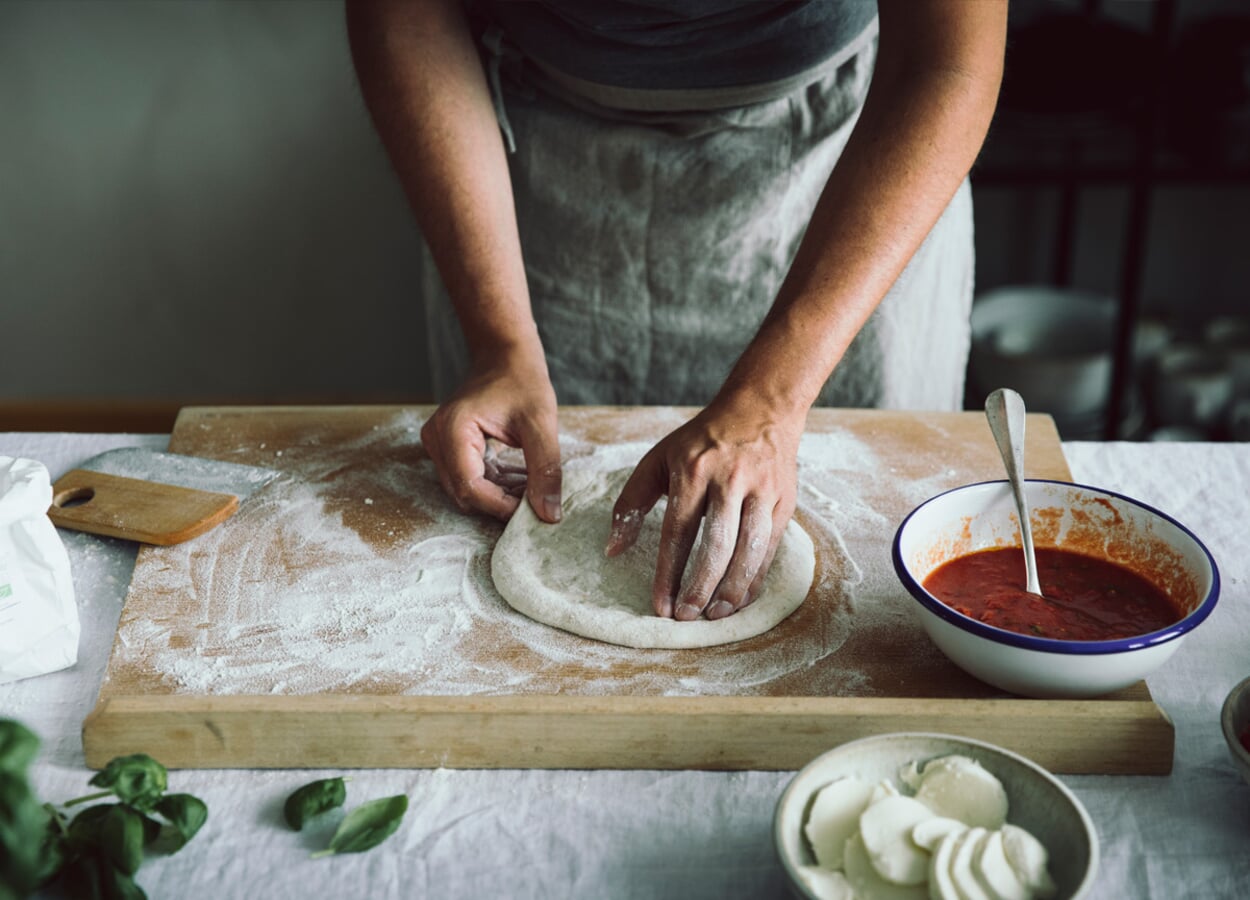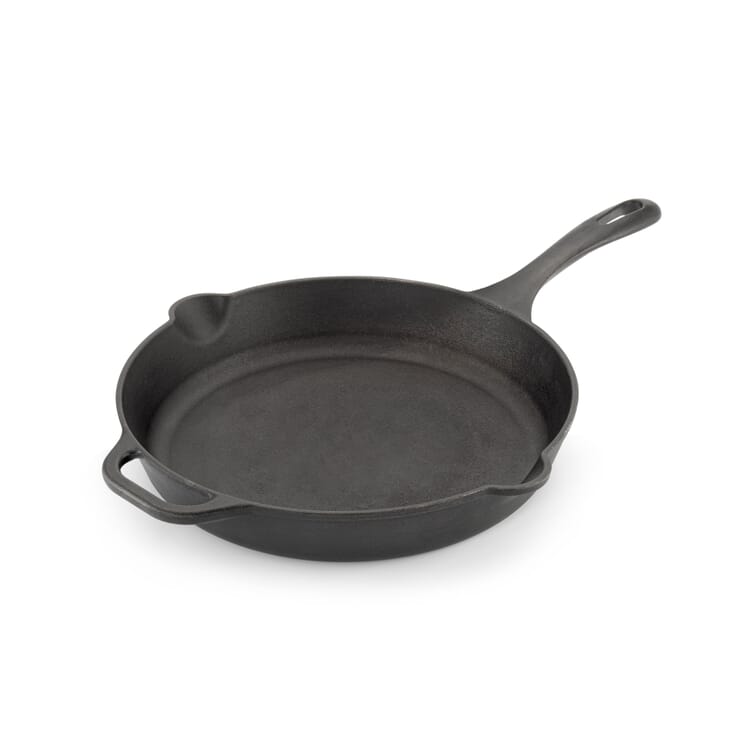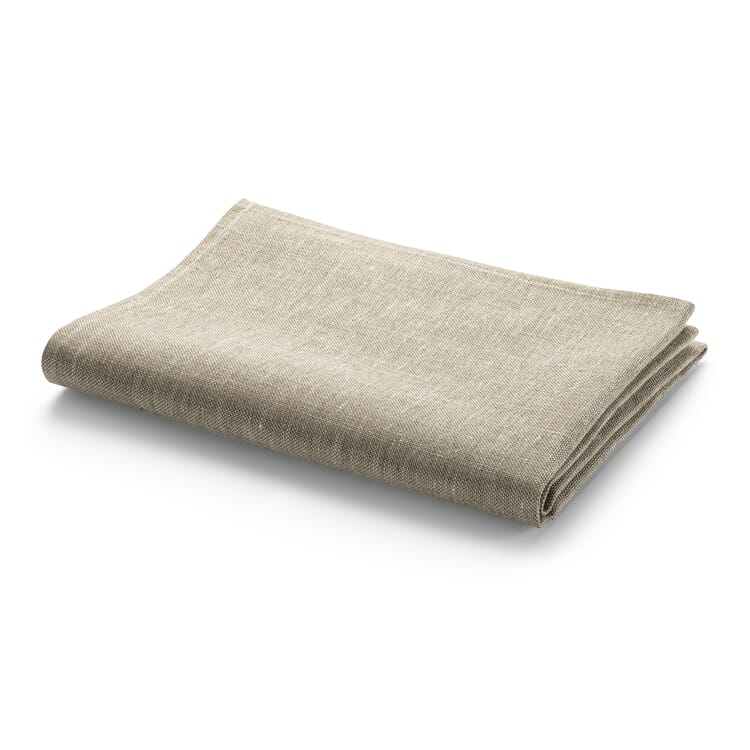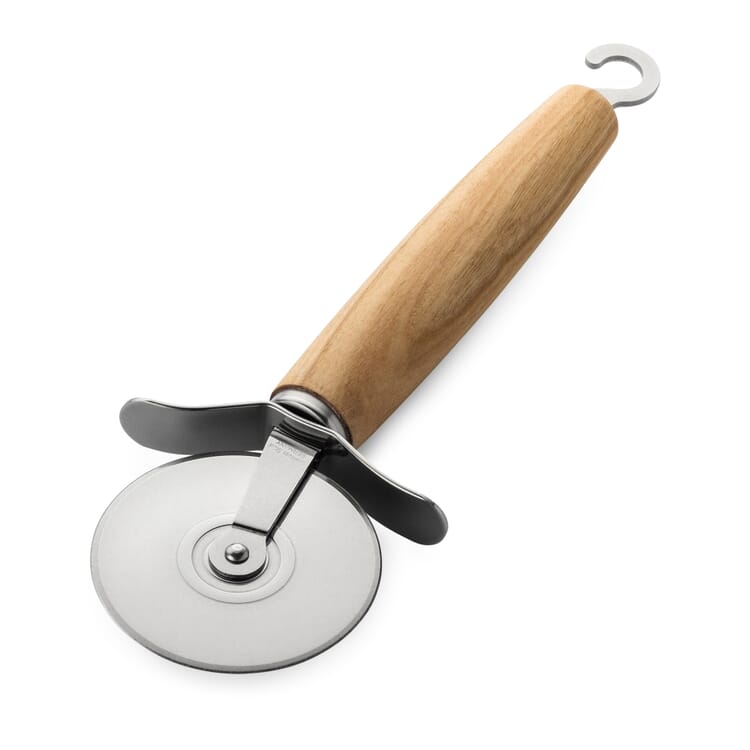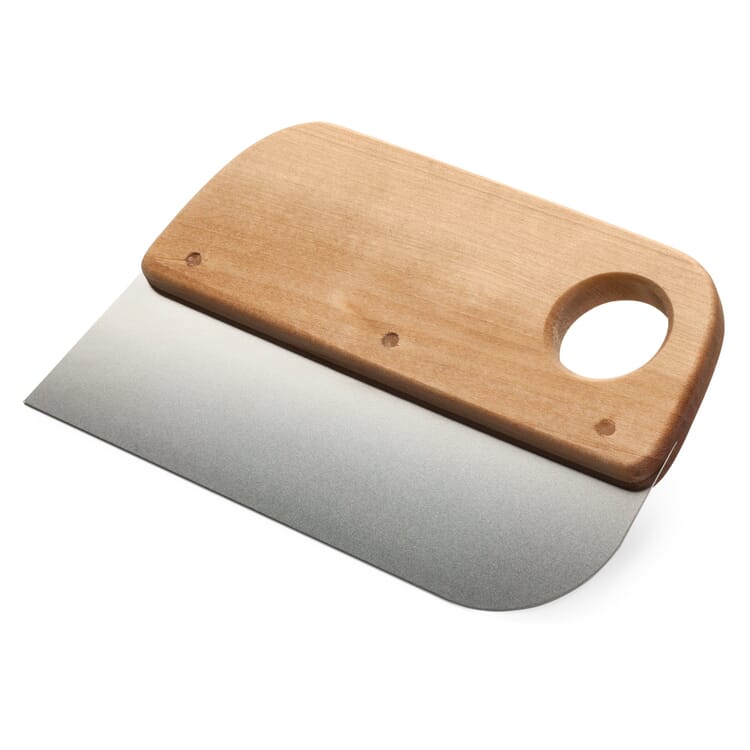Recipe
Pizza Margherita. Baked in the cast iron pan
You don't have to be a real pizzaiolo to serve your guests a good "Margherita". You just need the right ingredients, the right kitchen equipment and a good dose of love. In Italy, pizza is traditionally made with "lievito madre", a mild sourdough made from the basic ingredients of flour and water. We show you how to prepare it. However, the pizza also succeeds with a classic pizza dough. The Neapolitan classic becomes beautifully crispy if you bake it in a cast iron pan.
Ingredients for four pizzas
For a sourdough:
50 g active sourdough starter (wheat)
50 g pizza flour (00)
50 g whole wheat flour
100 g lukewarm water (ideal temperature 24-26 °C).
For a pizza dough:
200 g starter
310-330 g cold water
about 450 g pizza flour
25 g durum wheat flour
20 g whole wheat flour
1 teaspoon honey
15 g salt
a little olive oil.
For the topping:
1 can of San Marzano tomatoes (400 g)
5 g salt
5 g olive oil
1 handful of fresh basil leaves
2 scoops of mozzarella
200 g cherry tomatoes to taste
If you don't want to make your own active wheat sourdough for pizza dough, ask your local bakery or your favorite Italian restaurant if you can get some sourdough there.
The preparation
-
For the sourdough, mix all the ingredients and let it mature for 3-4 hours at about 28 °C until it has at least doubled in volume.
-
For the pizza dough, mix all the ingredients in the kneading machine for about 5 minutes on the lowest speed and then for another 10 minutes on the second speed until the dough is smooth. Add the water gradually during this process until a medium-firm consistency is reached. Cover and let rise for 90 minutes at 28 °C (see above), stretching and folding once every half hour. Then place in the refrigerator and leave to mature for 20-24 hours.
-
For the pizza, remove the dough from the refrigerator 2-3 hours before preparation and let it reach room temperature. Cut the dough into quarters and work the dough round. Cover with baker's linen or a kitchen towel and let it relax again for about 30 minutes, meanwhile place the cast-iron pan on a rack in the oven (2nd rack from the bottom) and preheat the oven to 250 °C.
-
For the sauce, put the tomatoes, salt and olive oil in a bowl and mash with your hands until you get a slightly chunky mixture. Wash and dry the basil, roughly shred it and mix it in. Refrigerate. On a lightly floured work surface, flatten the dough to the size of the pan. Brush off excess flour, carefully place in preheated pan, brush with sauce and top with shredded mozzarella and cherry tomatoes. Bake for about 8-10 minutes.
Prepare sourdough yourself
In Italy, pizza dough is traditionally made with Lievito Madre, a mild sourdough that is basically just flour and water. If you want to do it yourself, we recommend the following procedure:
- Start with an apple and let it ripen at room temperature for one or two weeks, until it has a slightly sweet smell and the skin is already starting to shrivel
- Cut the apple into larger pieces, cover it with water in a bowl and cover the bowl with a net. Prepared in this way, the apple should ferment for about 48 hours
- Drain the apple, collecting the liquid
- the resulting yeast water. In a jar, mix 100 g of yeast water with 100 g of whole wheat flour and cover the whole thing with perforated cling film. After about 12 hours, the volume of the yeast-water-flour mixture should have doubled
- You should refresh this mixture in the course of a week about every 12 hours as follows: Take 100 g each from the jar and feed with 50 g each of water and flour.
For orientation: the yeast should steadily produce bubbles and give off a slightly alcoholic smell. Then the mixture is successful and you can use it for baking. Store your sourdough in a screw-top jar in the refrigerator and feed it regularly with water and flour to keep it alive. (Instead of whole wheat flour, you can now add a light flour).

